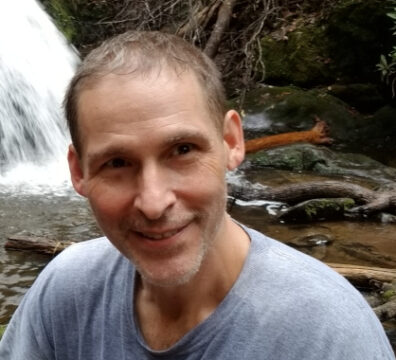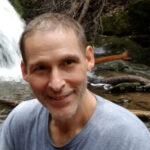You open your internet browser and search to find reliable health information. You find tons of sites offering to sell you diet plans, exercise programs, weight loss pills, and maybe something about mental health. How do you know what’s trustworthy and what’s a sales pitch to sell you something? How do you find reliable information? More importantly, how do you filter out the content that’s not reliable? You don’t want to waste time on something that doesn’t solve your problem.
That’s where I come in. If you’re looking for accurate health information on nutrition, fitness, social relationships, your brain and mind, or developing a purpose, you’ll find this starting page helpful.
Who Am I, and Can You Depend on Me to Find Reliable Health Information?
I’m Kirby Chapman (yep, I’m sharing my real name). My mission is to provide trustworthy information on fitness, nutrition, cognitive health, social well-being, and purposeful living to the world. I aim to guide individuals on how to balance these characteristics in their busy lives.
My information sources have to pass two rules – peer-reviewed and unbiased research. You can find out about those here, as well as a list of reputable health and fitness sources that I lean on almost exclusively.
I have a background in the engineering aspects of the human body and certifications that qualify me as an expert on fitness and exercise.
Doctorate in Mechanical Engineering
You might wonder how mechanical engineering makes me a trustworthy source of health-related information. First, mechanical engineering focuses on, among other things, fluid flow, heat transfer, energy use, chemical reactions, and force balances. Those topics describe the processes that run our bodies.
I spent the last portion of my career focused on understanding and applying these topics to the human body.
But the key skill I learned, especially in this age of rampant social media “information,” was how to separate reliable information from opinions. Opinions are just that – a thought, viewpoint, or belief someone has that isn’t necessarily backed by science and research. A fact, on the other hand, is a proven truth – and in the case of this web site, proven means backed by reputable peer-reviewed research. This is a critical skill in today’s world when it comes to our ability to find reliable health information.
Example: Energy Transfer
Every time we eat something, we transfer energy into our body. Then some complicated reactions in our digestive systems transform that food energy into energy our bodies can use through complex chemical reactions.
This process fuels our muscles, brain, body repair, growing new cells, breathing, and pumping blood throughout our body. That blood transfers oxygen to cells and removes waste products from cells. It also transfers heat from the interior of our bodies to keep us at a proper temperature.
In fact, our bodies are a sophisticated chemical laboratory, moving proteins, fats, hormones, and other components throughout our bodies. This is how our bodies maintain themselves. It’s very intriguing!
Example: Carrying Groceries from the Car to the Kitchen

This is a common function of everyday life. To carry groceries from the car to the kitchen, we must have sufficient muscular strength to lift the bag of groceries. We must also have the muscular endurance to carry that bag of groceries from the car to the kitchen. And endurance and strength are two quite different things that are developed in vastly diverse ways.
Our brains need to activate the proper muscles to lift and carry those packages. It also needs to kick-off specific chemical reactions to provide energy to those muscles. I’ve studied how our brains learn to activate those proper muscles and how our brains trigger those chemical reactions that need to happen to nourish those muscles.
While this may seem simple, if you are getting on in age like me, it may not be as simple as it once was. And then if you must navigate the stairs on the way to the kitchen, balance comes into play. How do we take care of balance? Again, our brains over time learn how to balance our bodies while carrying a heavy bag of groceries in one hand.
How to Find Reliable Health Information
The most important skill I learned while becoming and working as a PhD in Mechanical Engineering is to separate inaccurate information from trustworthy information. Say, for example, you want to go on a hike with your kids. But you know you’re not fit enough to do that now. You need to prepare.
How do you find reliable health information that helps you increase your muscular endurance so you can keep up? There are proper ways to increase muscular endurance and then there are ineffective ways. For example, there is a significant difference between muscular endurance and muscular strength. And you train for each differently, as stated above. If you follow the wrong advice from a so-called “influencer,” you might spend time doing something that is ineffective.
I know how to tell the difference between inaccurate and accurate information when it comes to our bodies. So, how can you find reliable health information? Trust the information on this site because I fully evaluate all health-related information you find here and guarantee it is trustworthy.
Personal Trainer Certification and Fitness Specialties
I am certified by the National Association of Sports Medicine as a personal trainer. What does it mean to be a personal trainer, and how does that help me provide reliable health information? I have taken a course and passed a certification exam on a broad range of exercise topics. These topics include human physiology, anatomy, and exercise programs for a variety of populations. The material they teach is solidly backed by research from reputable sources such as the CDC, FDA, and research activities in exercise science.
A small number of organizations who certify personal trainers are accredited by the National Commission for Certifying Agencies (NCCA). I chose the NASM program because they are accredited by NCCA and because of their Optimum Performance Training model. It covers the core muscles (commonly called our abs), cardiorespiratory endurance, muscular strength and endurance, flexibility, power, and balance.
Since I received my certification, I earned the Performance Enhancement Specialty. I used that to train and prepare high schoolers for a competitive soccer season. I also trained youngsters in martial arts, specifically Taekwondo.
I’ve developed fitness programs for a variety of populations – those who want to compete and perform at an elevated level to those who just want to increase or maintain their fitness.
Am I a trustworthy source of fitness information? Absolutely. Not only have I trained others from the youngsters to those more senior (including myself), but I have also done every exercise and exercise program you’ll find on this site. I would not post it here if it weren’t effective and efficient at helping you reach your fitness goals.
Martial Arts Black Belt
I set a fitness or health goal on each birthday and give myself a year to achieve it. For example, run a 5K in a personal best time. At first, these goals were run-based. I was a runner, and it was easy to add a chunk of miles to my birthday goal. At 57, I set a goal for a half-marathon. I completed the half marathon the following summer. Logically, my next goal would be a marathon, but I couldn’t get excited about doing that.
Walking down the sidewalk shortly before my 58th birthday, I tried to craft a good fitness goal for the next year. And then I noticed the Flying V Martial Arts school. I went in and realized this was much more comprehensive training than I had been doing. Running in a straight line for miles taught me to, well, run in a straight line. Nothing against runners, here. I could have added strength and agility training to make running more effective, but I didn’t.
I tested for and earned a black belt in taekwondo. And I competed at the national level, earning gold and silver medals. All aspects of my fitness were at an elevated level.
I still run, just not for miles. I run to increase my cardiovascular fitness. But more than that, I’m flexible and agile, and my muscular endurance and strength, and my balance are where I want them.
How Does This Collection of Skills Help You Find Reliable Health Information?
During my career, I chose to use my mechanical engineering skills to understand how our bodies function and adapt. At another career point, I became focused on health and fitness. I was amazed to find out how mechanical engineering applied to most things our bodies do.
Then I decided to augment those skills with an education in personal training. That education taught me how to apply engineering skills to exercise science. I used myself as a test lab to figure out what exercises are most effective. And I fine-tuned my nutrition to support my body. And I’m the healthiest I’ve ever been.
But I found that I always became a little too obsessed about things – like exercise. So, I started studying how to bring balance to my life. I learned the longevity benefits of setting priorities that started with nurturing our minds and bodies, as well as our social connections. And those social connections can be friends or family members.
In other words, I went from being very one-dimensional to multi-dimensional most days of the week. Part of that multi-dimensionality is helping others improve their fitness, either for martial arts or general health. And the cool part is I apply my background knowledge to help people achieve all kinds of fitness levels – from walking to playing sports.
Highlights on Finding Reliable Information
Each page on this site ends with a Question/Answer section that highlights key points from the page. I oftentimes expand on some point that may need a little more explanation than what is on the page.
Can you find reliable health information here?
Definitely. And that’s because I thoroughly evaluate each topic and only use information from reputable, reliable sources. More than one person (called peer-reviewed) generally reviews the information. Reputable research results must also back up the information. For example, I frequently use web sites such Mayo Clinic or the Cleveland Clinic to evaluate the reliability of health claims. Both have well-funded research programs and are leaders in the field of medicine. So those are in my list of reputable institutions. If a concept doesn’t pass the reliability test, then I either won’t post it on this site, or I’ll make it VERY clear that it doesn’t pass the reliability test.
Do I do everything that I talk about in posts?
Most days, yes. My diet follows the guidelines I list in the nutrition section. I exercise most days of the week and go for long walks on the days I don’t exercise. I meditate most days of the week. And I focus on a purpose that might be long-term or short-term. And I nurture my social relationships with family and friends.
I complete these activities in a way that balances my day – I spend time in the morning focusing on my purpose and my brain sharpness. Then I exercise in a way that strengthens my cardiovascular and muscular systems, while at the same time improving my balance and agility. I end with a good flexibility session. Then I finish the day with a walk and good discussion with either my life partner or a social acquaintance. Throughout the day, I make sure I drink water, eat 5-7 servings of fruits and vegetables, and consume 25 g of lean protein four times a day.
Is information from social media sites (Facebook, for example) reliable?
Not typically. Information on social media sites is generally not peer-reviewed and are opinions, not facts based on solid science and research. Not to start a debate, but I was amazed at the Facebook posts during the pandemic – do masks work (the science says the mitigate the spread of viruses carried in small water molecules expelled from our mouths) and are the COVID vaccines necessary (yes, just like any other vaccine – if everyone was vaccinated, the disease would soon be a thing of the past). But an observer wouldn’t know what to make of the Facebook information on COVID. And the information you find about your health and fitness on social media sites is the same – they are opinions, not facts.
What areas should I focus on each day?
While not a specific topic of this page, I hint at them in the “Do I do everything…” question above. Most days of the week, I (and you should, too, for a happy healthier life) take time to:
- Eat nutritious meals – nurture our bodies.
- Exercise that includes a combination of cardio, resistance training, and balance – also nurtures our bodies.
- Focus on, or develop, a meaningful purpose in your life that makes a positive impact on other people’s lives – volunteer at the food pantry, help some kids in a martial arts class, help the less-fortunate,
- Nurture your social interactions with others – research shows that, especially as we age, enhanced longevity comes from social interactions and relationships, and
- Take care of your mind by engaging in continued learning, such as developing a new skill, reading a complex book, or taking the time to really understand a concept.
There is another area, but I don’t have to work at it each day – unless I do. This area is our environment. That’s the place we work, sleep, shop, and do about anything else. If it’s a safe, healthy environment, then we don’t have much to do in this area. But if it’s not, I encourage you to make whatever changes are necessary to make it a safe, healthy environment – and sometimes that means moving. But it could mean becoming more active in making the positive changes in the region you live in. And that might also be a good purpose!


 Hi, I’m Kirby Chapman, the creator behind The Healthy League. You can read about
Hi, I’m Kirby Chapman, the creator behind The Healthy League. You can read about